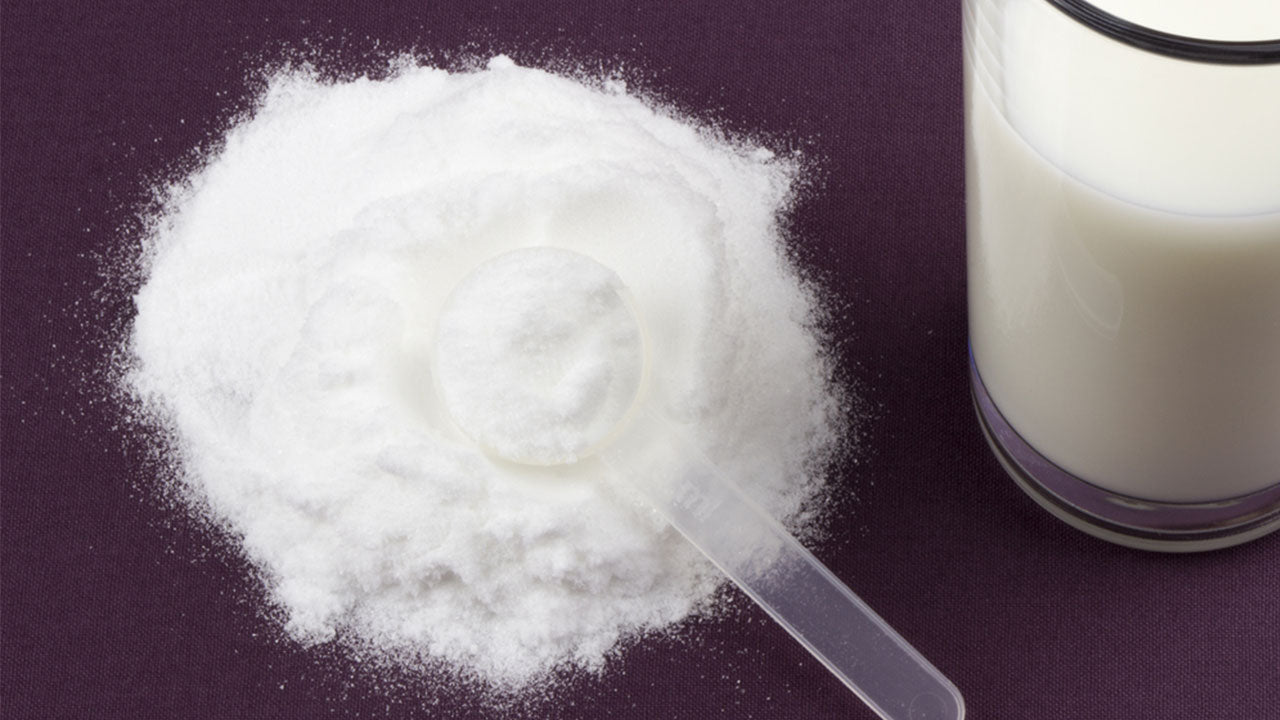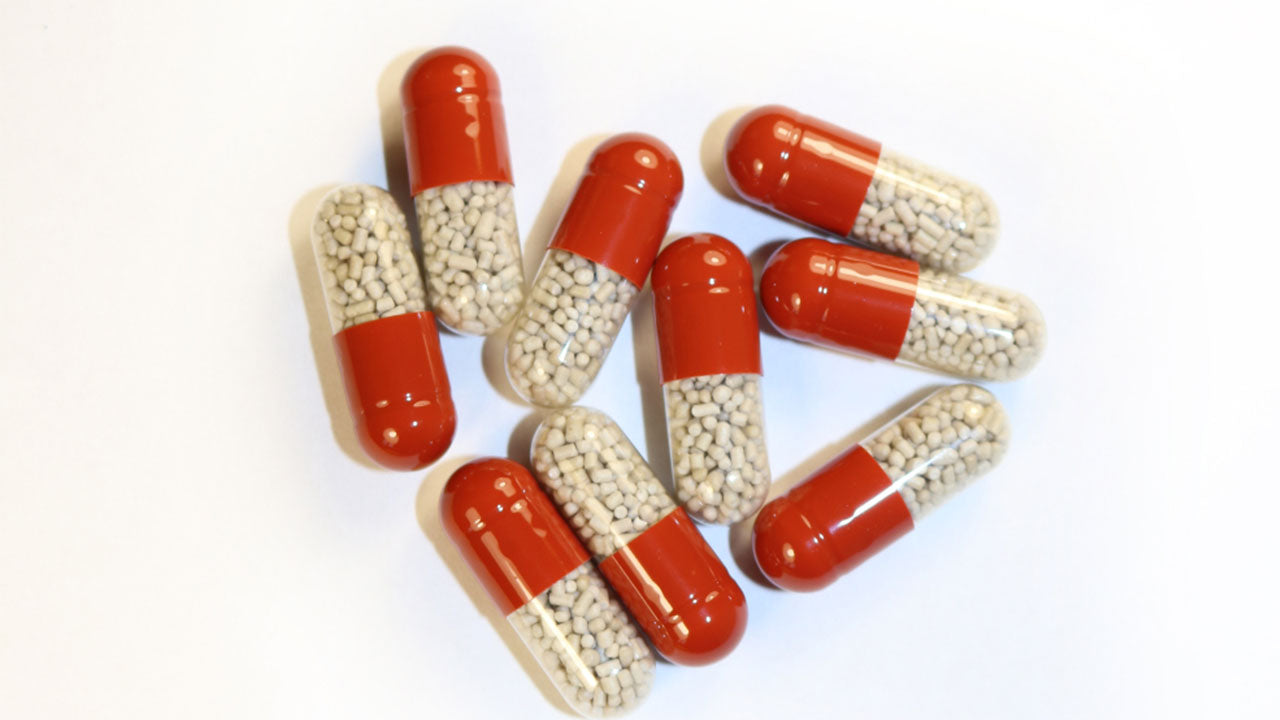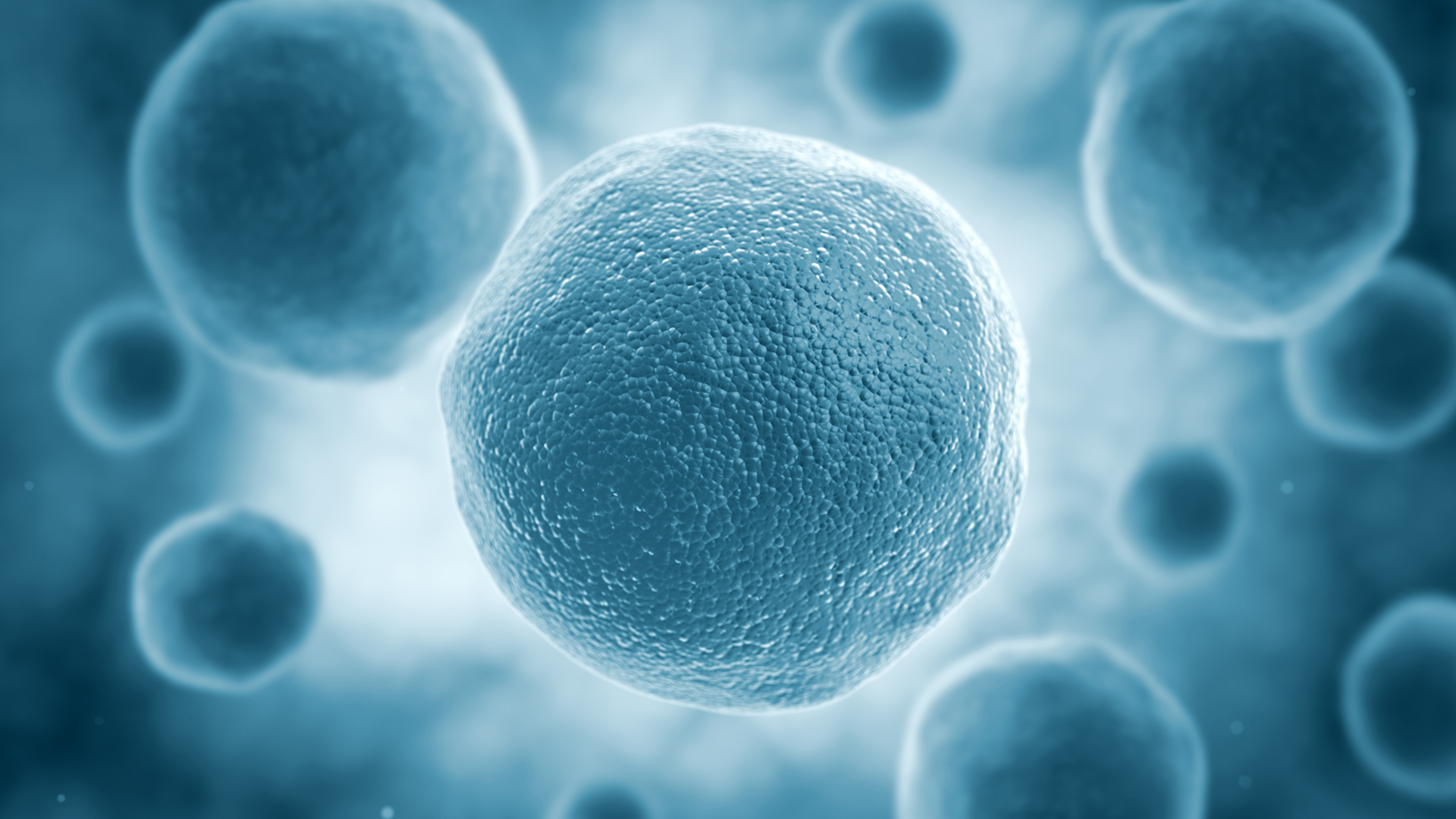Should You Take a Glutamine Supplement?
 By: by Amino Science
By: by Amino Science

Glutamine, also known as L-glutamine (the form used by the body), is one of the most well-known amino acids in the supplement world because of the many roles it plays in the body. It’s an important building block of protein, it nurtures digestive tract health, and your immune system depends on it. While glutamine is produced naturally in the body and is found in various foods, glutamine supplements have become popular—especially among people looking to build muscle mass—for boosting glutamine levels. But should you take a glutamine supplement? Is it worth it? Let’s find out!

Glutamine’s Main Role in Muscle
Glutamine is the most abundant free amino acid in skeletal muscle and is required for muscle protein synthesis (the building of new muscle tissue). And because it’s made in the body and is available in large amounts, there’s never a shortage of glutamine for protein synthesis.
Glutamine’s main role in muscle is detoxifying the ammonia that’s released when amino acids are metabolized. In fact, glutamine is the main carrier of ammonia throughout the body.
When ammonia is released during the metabolism of certain amino acids, including the branched-chain amino acids isoleucine, leucine, and valine, it’s transferred to the amino acid glutamate to form glutamine in muscle. Glutamine is then released by muscle and carried via the blood to the liver, where the toxic ammonia is converted into nontoxic urea and excreted in the urine.
Muscle Glutamine and Critical Illness
Depletion of muscle glutamine occurs in almost all diseases and illnesses. This is because these conditions are widely known to lead to muscle wasting, and glutamine depletion occurs at the same time as the net breakdown of muscle.
It has therefore been widely postulated that glutamine depletion resulting from impaired production causes muscle protein breakdown and, thus, the wasting away of muscle. However, this is not the case in critically ill patients. In fact, glutamine synthesis in muscle is accelerated in critically ill patients.
The reduction in glutamine concentration in muscle actually results from the rapid transport of glutamine out of the muscle and into the blood, where it’s taken up at increased rates in other tissues and organs. Because of this rapid use by other tissues and organs, the blood level of glutamine drops despite its accelerated release from muscle.
Accelerated glutamine production in muscle occurring at the same time as an increase in muscle protein breakdown is to be expected. As mentioned earlier, the reason for this is that when muscle protein breaks down, amino acids are released and metabolized, creating potentially toxic ammonia in the process.
In other words, if you speed up protein breakdown, you create a greater need for the resulting ammonia to be cleared away from the muscle and transferred to the liver so it can be converted into urea and eventually excreted in the urine. Urea excretion is increased in almost all forms of serious illness. And as we’ve already discussed, glutamine plays a key role in this process.
Thus, the concentration of glutamine in muscle falls because it’s being rapidly exported into the blood to deal with increased ammonia concentrations.
Muscle Glutamine and Overtraining Syndrome
Overtraining syndrome is a condition that occurs when a person doesn’t allow themselves sufficient time to recover from workouts. Though individual symptoms vary, the main symptom seen is a deterioration in exercise performance despite harder and harder training.
Although there’s little doubt that overtraining does, in fact, occur, the exact basis for the syndrome is still uncertain. Likewise, even though reduced concentrations of glutamine in muscle and blood are markers of overtraining syndrome, it’s unclear if decreases in glutamine actually cause the syndrome or if glutamine depletion is merely a symptom of it.
Supplementing with Glutamine During Critical Illness and Overtraining Syndrome
The relationship between decreases in muscle glutamine concentration and net loss of muscle protein (in critical illness) and deterioration of performance (in overtraining syndrome) seems to lead logically to the use of glutamine supplements. However, there’s little evidence that glutamine supplements maintain muscle mass and function, regardless of the situation.
How can this be?
For one thing, the body normally makes about 80 grams of glutamine per day, and the rate of glutamine production increases in pathological states. In addition, glutamine makes up a substantial percentage of dietary protein, so daily consumption of glutamine may be as much as 80 grams per day as well.
Therefore, it’s very difficult to consume enough glutamine in supplement form to make a significant impact on the body’s glutamine levels relative to the amount that’s normally produced and consumed through your normal diet.
Moreover, as we alluded to earlier, it’s very difficult to get glutamine into muscle cells when the process of muscle breakdown signals the body to release more glutamine into the blood to deal with increased levels of ammonia.
Glutamine doesn’t move freely into and out of muscle. Rather, it has a specific transporter that shepherds it from the blood to the cell against a concentration gradient—an area of higher concentration to one of lower concentration.
But that transport mechanism is reversed in critical illness and overtraining syndrome, so rather than carrying glutamine into the muscle, it’s carrying it out of the muscle and into the blood. As a result, very little glutamine will enter the muscle even when the blood concentration is increased significantly with glutamine supplementation.
Consequently, taking L-glutamine supplements has little impact on muscle mass or function.
Glutamine and Immune Function
Immune function involves a complex network of immune cells and signaling molecules that are crucial for fighting infection. A variety of immune system functions are supported by glutamine metabolism, and the decrease in blood glutamine concentration in critical illness discussed earlier occurs in part because of the accelerated use of glutamine by the immune system.
In a review of 14 different clinical trials of glutamine supplementation, researchers analyzed the ability of a glutamine supplement to enhance immune function, as reflected by infectious complications and length of hospital stay in surgical or critically ill patients. The analysis showed that there may be an association between glutamine supplementation and a reduction in infectious complications and shorter hospital stays, although the association was not very strong.
The importance of immune function in hospitalized patients is plainly evident, as resistance to infection is crucial to the recovery process. However, what’s less well appreciated is that strenuous exercise also stresses the immune system.
In fact, according to a study published in the journal Nutrition, glutamine supplementation may decrease the incidence of infections in endurance athletes following bouts of intense exercise.
Glutamine and Intestinal Health
In addition to the role played by the intestines in digestion and nutrient absorption, intestinal cells are also involved in a variety of other functions, including immune response and hormone secretion.
Amino acids, particularly glutamine and other nonessential amino acids, which can be produced in the body, play an important metabolic role in the intestines.
Glutamine metabolism is a crucial component of energy generation in the intestines and is a precursor for a number of important metabolic pathways, especially those leading to the production of the amino acids ornithine, citrulline, proline, and arginine.
Because of the specific metabolic function of glutamine in the intestines as well as its protective action, including its role in modulating intestinal permeability, many clinical trials have been conducted to assess the benefits of supplementation on intestinal health, particularly with respect to states in which normal intestinal function is disrupted—such as ulcerative colitis, Crohn’s disease, and leaky gut syndrome.
However, the results of these trials have been confusing and inconclusive. This is in part due to the fact that the amino acids glutamate and proline can easily substitute for many of the metabolic roles of glutamine, including energy production and amino acid synthesis.
So does glutamine supplementation benefit gut health? I’m afraid the answer to that question is, at best, a firm maybe.
Glutamine and Neurotransmitters
Glutamine plays several parts in the brain and central nervous system (CNS). Its principal action is as a precursor in the production of glutamate and aspartate, both of which are excitatory neurotransmitters. Glutamine is also the precursor of the inhibitory neurotransmitter gamma-aminobutyric acid (GABA).
Much of the production of glutamate and GABA from glutamine occurs via a metabolic pathway within the CNS. Initially, glutamine is produced from glutamate and ammonia in specialized cells within the CNS called astrocytes, which are star-shaped glial cells—cells that surround and support the work of neurons. Newly produced glutamine is then transferred to neurons, where it’s converted into glutamate and GABA and sometimes aspartate.
The relationship between glutamine and glutamate in the astrocyte is cyclic. Glutamine metabolism forms glutamate, which in turn combines with ammonia to reform glutamine. For this reason, this process is referred to as the glutamine-glutamate cycle.
As stated earlier, the glutamate, GABA, and aspartate produced from glutamine act as neurotransmitters. And since glutamate and aspartate work to counteract the influence of GABA, the balance of these neurotransmitters is crucial for healthy brain activity.
Thus, the metabolic reactions that regulate the glutamine-glutamate cycle are tightly controlled to ensure that the appropriate balance of neurotransmitters is maintained.
Glutamine Supplementation and Brain Function
Glutamine has the ability to pass through the blood-brain barrier via a specialized transporter, so in theory, glutamine ingestion can increase levels of glutamine in the brain. But most of the glutamine in the brain comes from the process of glutamate combining with ammonia in the brain’s astrocytes.
In spite of this, glutamine supplementation is often recommended for improving brain health, particularly when blood levels of glutamine are low. However, evidence to support this claim is minimal.
In fact, it’s very difficult to increase concentrations of glutamine in the blood and ensure it enters the brain because a typical glutamine supplement provides only a small fraction of the total amount of glutamine present in the body. In addition, the body regulates the entry of glutamine into the brain to maintain a proper balance of glutamate, aspartate, and GABA.
The primary source of glutamine in the brain is also derived from the glutamine-glutamate cycle, rather than the blood, so the failure to demonstrate a beneficial effect of glutamine on brain health—even with amounts greater than what’s normally consumed in the diet—is not surprising.
So...Should You Take a Glutamine Supplement?
Glutamine is the most abundant amino acid in the body and plays many metabolic roles. It serves as a shuttle for transferring ammonia from muscle to liver, fuel source for the intestines and immune system, and precursor for key neurotransmitters in the brain.
Because of glutamine’s many diverse roles, L-glutamine supplements have been promoted extensively, particularly in stressful or pathological situations in which blood glutamine concentrations have been depleted.
While there’s some evidence that glutamine supplementation may aid immune function when blood concentrations of glutamine are decreased, supplementation has shown only minimal benefits in other areas, including muscle building and brain function. You'll make a far greater impact using targeted essential amino acid supplements.
The ambiguous results of glutamine supplementation can in large part be attributed to the rate of glutamine production in the body as well as normal dietary consumption.
As stated earlier, glutamine production in the body is already so great that the incremental increase in availability provided by a dietary supplement—even in high doses—will usually be of only minimal significance.


Up to 25% off Amino
Shop NowTAGS: supplements
Join the Community
Comments (0)
Most Craveable Recipes




 833-264-6620
833-264-6620



















